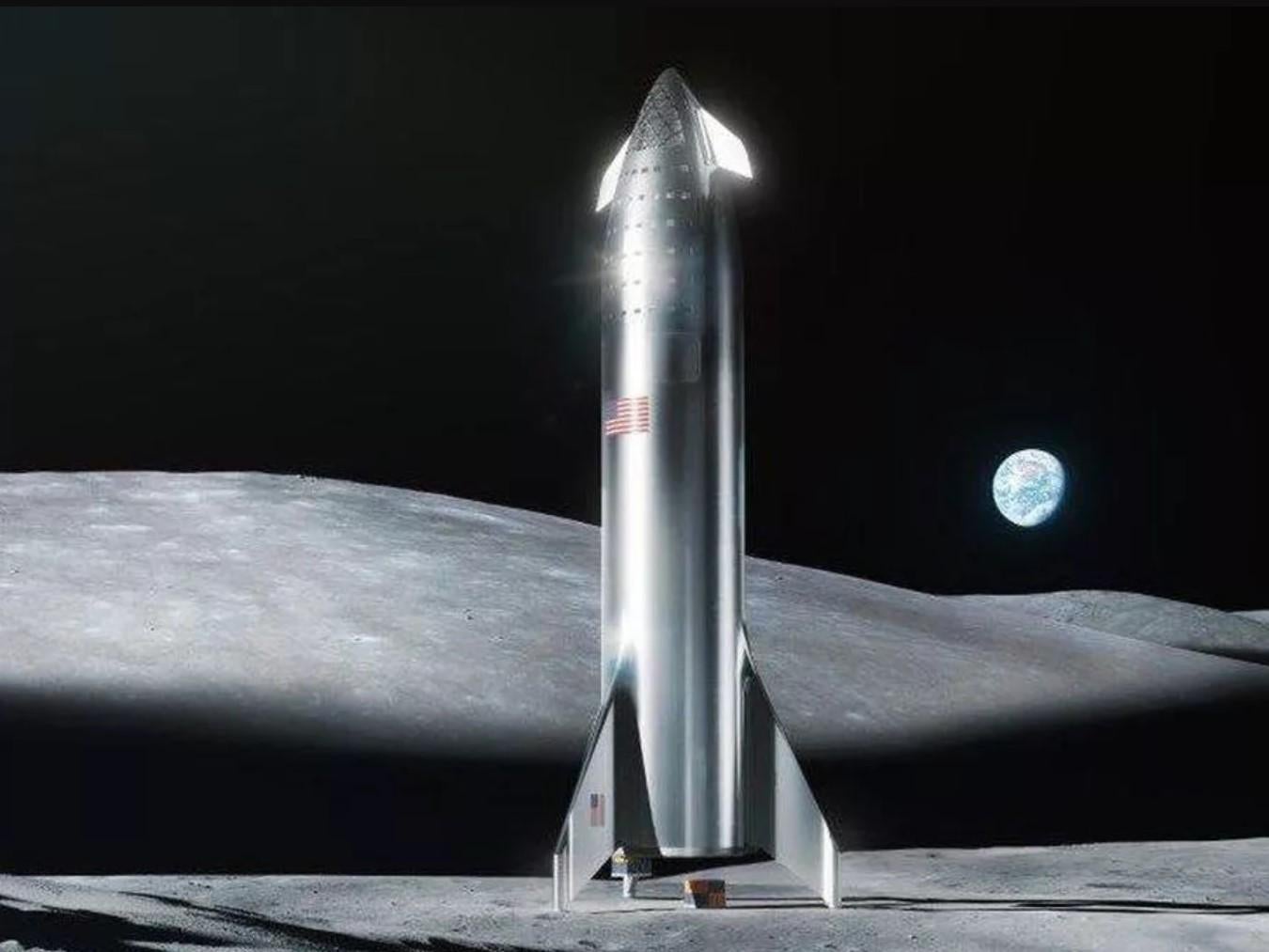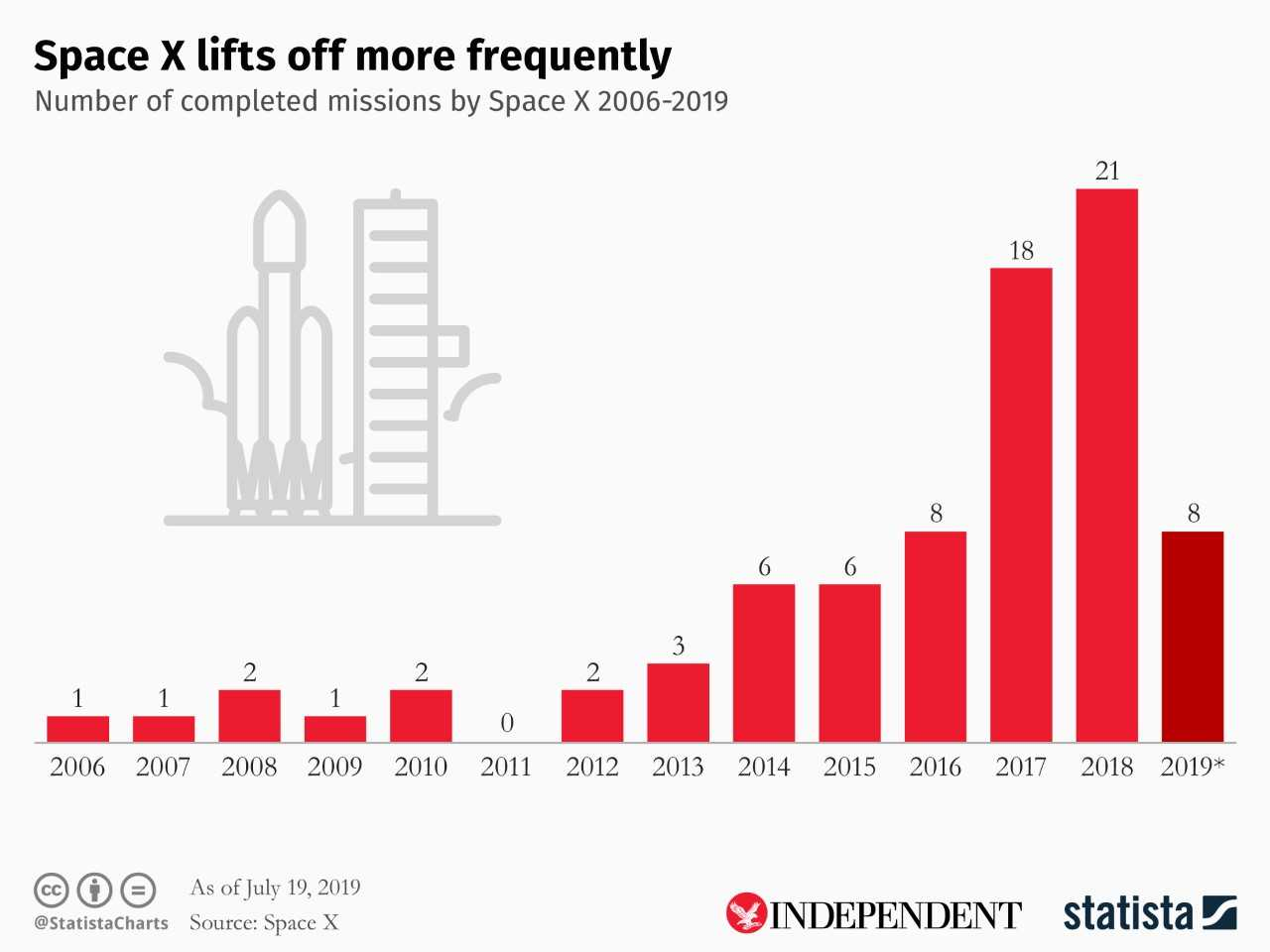Elon Musk says SpaceX can land astronauts on the moon within two years
'It may literally be easier to just land Starship on the moon than try to convince Nasa that we can,' Musk says
Your support helps us to tell the story
From reproductive rights to climate change to Big Tech, The Independent is on the ground when the story is developing. Whether it's investigating the financials of Elon Musk's pro-Trump PAC or producing our latest documentary, 'The A Word', which shines a light on the American women fighting for reproductive rights, we know how important it is to parse out the facts from the messaging.
At such a critical moment in US history, we need reporters on the ground. Your donation allows us to keep sending journalists to speak to both sides of the story.
The Independent is trusted by Americans across the entire political spectrum. And unlike many other quality news outlets, we choose not to lock Americans out of our reporting and analysis with paywalls. We believe quality journalism should be available to everyone, paid for by those who can afford it.
Your support makes all the difference.SpaceX CEO Elon Musk claims his company could take humans to the moon by 2021 – three years ahead of Nasa’s plan to replicate the feat firs achieved by Apollo 11.
Speaking in an interview to mark the 50th anniversary of the first moon landing, Mr Musk said its Starship space craft could land astronauts on the moon within two years, despite doubts from Nasa engineers.
“This is gonna sound pretty crazy, but I think we could land on the moon in less than two years. Certainly with an uncrewed vehicle I believe we could land on the moon in two years,” he told Time.
“If it were to take longer to convince Nasa and the authorities that we can do it versus just doing it, then we might just do it. It may literally be easier to just land Starship on the moon than try to convince Nasa that we can.
“The sheer amount of effort required to convince a large number of skeptical engineers at Nasa that we can do it is very high... But the for sure way to end the skepticism is just do it.”
Mr Musk has often stated that when he started SpaceX he originally gave it a 10 per cent chance of being a successful venture.
Having been inspired by the original Apollo 11 moon landings, the entrepreneur decided to use some of the money he made from selling eBay to start a private space firm that would inspire a new generation of space travel enthusiasts.
“The way I actually started out was I was gonna do a philanthropic mission called ‘Mars Oasis’ to land a small greenhouse on the surface of Mars with seeds in dehydrated nutrient gel that would hydrate upon landing. And you’d have this incredible shot of green plants against a red background,” he said.

“My goal was simply to get the public excited, which would then get Congress excited so that they would appropriate more money and increase Nasa’s budget.”
With the increasing success of SpaceX, Mr Musk has since extended his ambitions for the firm. He believes that with innovations like reusable rockets, SpaceX can help humanity eventually become a multi-planet species, with the eventual goal of saving our species from extinction.

The SpaceX and Tesla boss is known for his overly-ambitious timelines, though has also made a habit of eventually delivering on promises.
Nasa's own estimates for returning to the moon are also ambitious, though slightly more conservative. The US space agency aims to land a crew capsule on the south pole of the moon in 2024.

Join our commenting forum
Join thought-provoking conversations, follow other Independent readers and see their replies
Comments